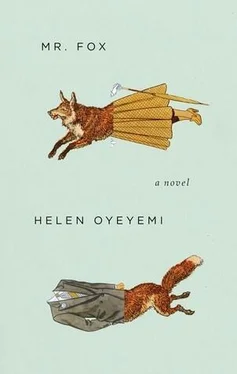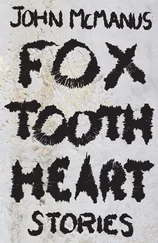So. When I say I’ve been visiting my mother, that means I’ve been visiting her grave. I bring her foxgloves; her maiden name was Foxe. At her funeral she was hidden away in a closed casket because she was no longer beautiful. He’d done other things before he stabbed her — no one would tell me what. I suppose I could have insisted on seeing her, if I’d really wanted to.
I had counselling, which helped. I discovered cough syrup as an aid to sleep, and that was even better.

I didn’t go to the charity ball that night. I couldn’t face it. I called Jonas instead — he’s the closest thing I’ve got to a brother. His parents took custody of me and paid for the rest of my schooling and my food and clothes. And because I was academically advanced and they thought it would be wrong for me to be kept back, they put me through university at the same time as Jonas — I was a drain on their resources. I kept a tally of the running costs as best I could and paid them back when I got a big enough contract. They were very angry, because they love me, and Uncle Tom tore the cheque up, and we never spoke of it again. They are such good people and I owe them so much that I can hardly look either of them in the eye. Jonas’s mother, Molly, is my mother’s younger sister — they used to tease each other about their Anglophilia, two American girls who married British men and developed a keen interest in the goings-on at Ascot, Wimbledon, and the Henley Regatta. Their older sister, Jane, is the one who still lives in America, and the one who had my mother flown out there to be buried. She’s an odd one, Aunt Jane. I don’t think I like her. Jonas isn’t keen on her, either. It exasperates him that she uses his name so often whilst speaking to him; it gives the impression that she’s trying her hardest not to forget who on earth he is. She does that to everyone. She’s always careful to call me Mary, so I find her constant repetition of my name sinister, as if she’s reminding me that I’m not who I say I am.
Jonas is a seminarian — in four or five years’ time he’s going to be a priest. I’ve never been inside his seminary, only glimpsed the grounds. A silence in the centre of London. The main entrance is a glass door set between grey pillars, and when I wait for Jonas on a Friday afternoon, sexy, soberly dressed men of every nationality pour out onto the street. Sexy because they belong to God and will never more be caressed by human hand. A strange thing, because I remember when we used to French-kiss, Jonas and I. We’d French-kissed all over the house while his parents went to concerts and galas and dinner parties. It was my idea. He said he’d never kissed a girl, and I felt sorry for him. So I showed him and showed him and showed him. “This isn’t right,” he stammered. “We’re related by blood.” But he liked it, and he was good at it. Very good at it, actually. Gentle but subtly demanding, too, the way he’d pass his hand through my hair, his lips moving over my mine, slow, savouring. He was talented, at an age when other boys were horrible kissers, just horrible and sloppy. I was fourteen then, and he was sixteen. When Jonas came to the phone I asked him if he remembered that we used to kiss. “I remember,” he said tersely. “Is that why you called?”
I meant to tell him about the letter from my father, and to ask what to do. But I could already hear him telling me that I’d have to go to the prison hospice, that place of marvel my father promised me. So I ended up telling Jonas that someone had died on the plane, and that her name was Yelena. He didn’t ask me if I was all right. He listened. He let me tell him what happened again and again, in more detail as the details came to mind.
“Why are you laughing?” he asked abruptly. It was true, I was — and not quietly, either. I managed to say that I had to go, and hung up. So he was dying! My laughter rose in pitch to equal a scream.
Maybe the letter was a trick, like my father hiding in the house, waiting for my mother to come home without fear. I’d know tomorrow, when the lawyers phoned me back.
Dinner was vodka, such a lot of vodka. And Swing Time was on TV, so I watched that.
“Listen,” Ginger Rogers said to Fred Astaire, “no one could teach you to dance in a million years!”
That dried my laughter up immediately. I turned the TV off and went to bed, to the sleep that I loved.
In the morning I Googled S. J. Fox and found a sad story — a eulogy he’d written for his wife four years ago. It was tender. Very tender, and I stopped halfway through — I had no right to be reading it. There was no mention of the word “suicide,” but it was clear to me that that was what he was getting at. Someone from his wife’s family had posted the full order of the funeral service, including the hymns sung and the psalms and Bible passages read, and they, too, pointed to suicide. Oh, you broken, broken soul, they seemed to say. There is a balm in Gilead, etc. I studied the photograph of her. Daphne Fox. She was sitting on a mossy boulder with sunshine all around her, wearing a picture hat and holding on to it at the crown so it didn’t blow away. She’d been a PE teacher at the local comprehensive school, and had given it up when she’d married him. Like someone from another age. She was a bit plump, and she smiled shyly. Not at all the type I would have expected to see with someone like S.J. She seemed to like butterflies. She was wearing a pair of butterfly earrings and a butterfly pendant. I also made out a butterfly bracelet; the wings closed around her wrist. The life of a butterfly is very short. The German word for butterfly is Schmetterling. These were thoughts I had while avoiding the fact that Daphne Fox looked familiar to me. She was a redhead, like me, but that wasn’t it. I must have just looked at her for too long.
Having ascertained the facts, the lawyers returned my calls. Their voices were serious and low. The letter wasn’t a trick. My father was very ill.
Jonas said, Go to him.
Aunt Molly said, Go to him. So did Uncle Tom.
Aunt Jane said, Go to him, Mary.
There was something morbid about their insistence. He was going to die soon, so now his words were important and had special meaning. That’s what they wanted me to believe. It was disgusting. .
I pretended my mother spoke to me. I pretended she said, Don’t go to him, he’s evil. Don’t forget, she said, that he had that folder full of newspaper clippings. Don’t forget how he made you look through them. Don’t forget that some nights he kept you up until you had read through all the clippings again. He’d test you. He’d watch you wilt.
Why was Fatema Yilmaz buried alive under a chicken pen?
As punishment for talking to boys. She wasn’t allowed to.
Who punished her?
Her father and her grandfather.
How deep was the hole they dug?
Three metres.
Three metres? Are you sure?
No — no. Two metres.
Correct. Why was Medine Ganis drowned in a bathtub?
Because she wouldn’t do as she was told.
Elaborate, Miel. Elaborate.
Her father chose a man for her to marry and she said she wouldn’t do it.
Who was there when she drowned?
Her father was there, and her two brothers were there, holding her down. Her mother was there, but she took no part in it.
Where in the article does it say her mother took no part in it? Don’t embroider. Silence is consent.
But it doesn’t say her mother was silent—
Enough. Why was Charlotte Romm shot to death in her bed?
Читать дальше













